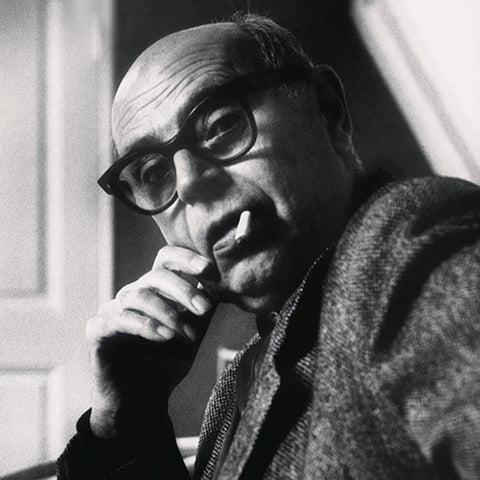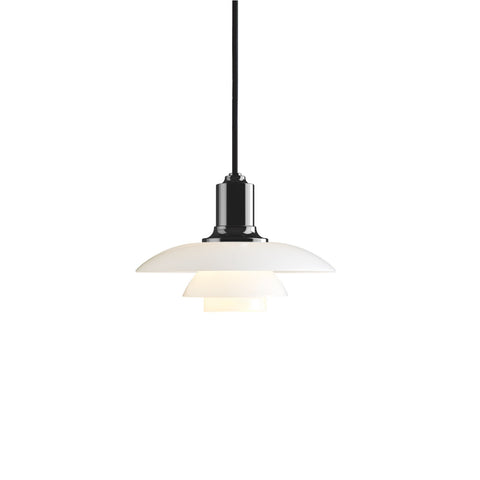
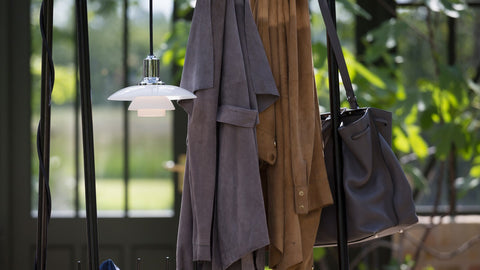
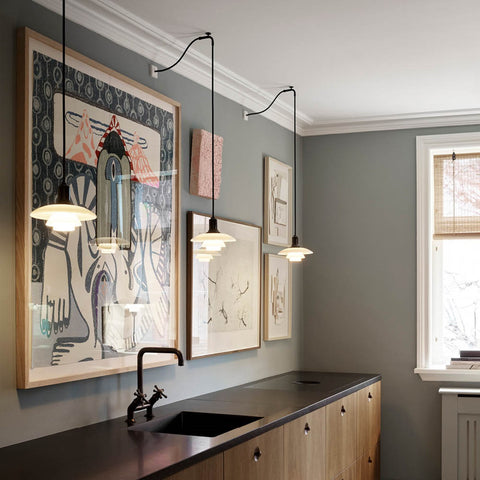
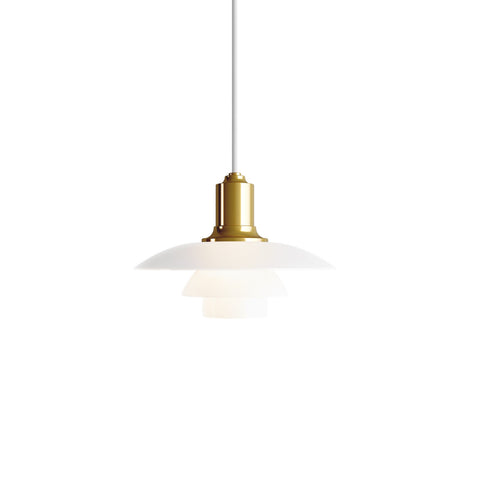
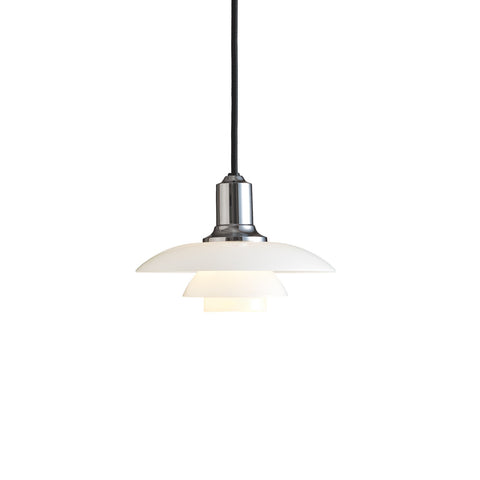
PH 2/1 Pendant
The fixture design is based on the principle of a reflective three-shade system, which directs the majority of the light downwards. The shades are made of hand-blown, opal, three-layer glass, which is glossy on top and sandblasted matte on the underside, giving a soft and uniform light distribution.
Poul Henningsen designed the three-shade system in 1925/1926 for a Paris exhibition and worked with Louis Poulsen until his death in 1967. His aim was to create glare-free lighting, directing light where needed and producing soft shadows using incandescent bulbs. The PH 2/1 Pendant is part of the three-shade family, which includes around 1,000 models, such as table, floor, wall lamps, and chandeliers. Early shades were metal with painted undersides for different light effects, later incorporating glass for added room illumination. Henningsen’s design, based on the logarithmic spiral, ensured even light distribution and controlled glare. The model numbers refer to the size of the top shade, with hybrid models like the PH 2/1 created for lower hanging heights.
This product doesn't have any reviews yet. Be the first to bring iconic design into your home and share your thoughts!
Diameter: 7.9"
Height: 5.5"
Cable Length: 144"
Material:
Shades: Handblown white opal glass (sandblasted on the undersides for uniform light distribution)
Suspension: Spun aluminum
1 x 20W LED G16.5/IF Candelabra
Cord type: 3-Conductor, 18 AWG White PVC Power Cord
Dry Location
cULus Listed
Most Louis Poulsen lighting fixtures come with a 5-year warranty. However, specific products have different coverage:
- Portable fixtures (such as table and floor lamps): 2-year warranty
- Separately purchased components (like replacement parts): 2-year warranty
Established in 1874 as a lighting manufacturer, Louis Poulsen has become one of the world's leading producers of lighting. This success is attributed to collaborations with renowned designers and architects like Arne Jacobsen, Øivind Slaatto, Poul Henningsen, and Verner Panton.
